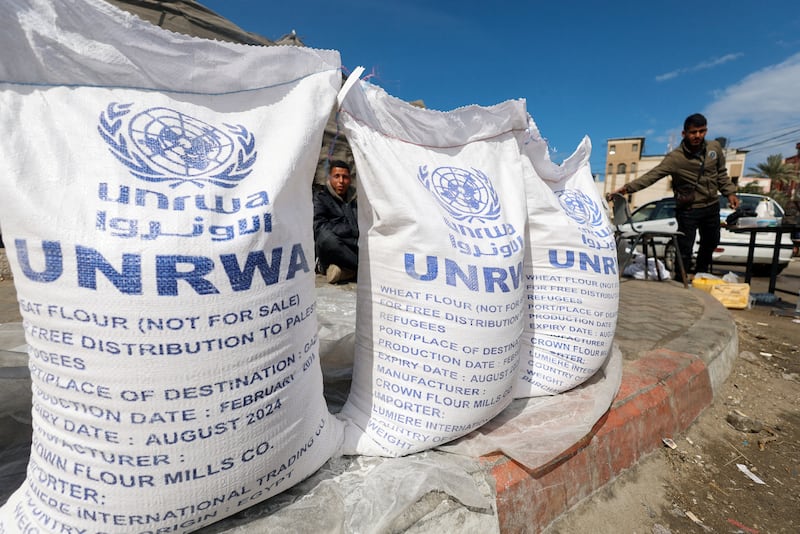Live updates: Follow the latest on Israel-Gaza
Israel provided no evidence to independent investigators to support its allegations that staff at the UN agency for Palestinian refugees were linked to "terrorist groups", a long-awaited report, released on Monday, stated.
“Israel made public claims that a significant number of UNRWA employees are members of terrorist organisations. However, Israel has yet to provide supporting evidence of this,” the 54-page report said.
The review of UNRWA also found that the agency has a “robust” approach to neutrality, but it added that some issues persist.
Led by the former French foreign minister Catherine Colonna, the review was commissioned after Israel claimed that 12 UNRWA staff took part in the Hamas-led attacks on October 7.
Israel stepped up its accusations in March, saying more than 450 UNRWA staff were operatives in Gaza extremist groups.
Throughout the nine-week review an assessment of UNRWA’s neutrality was conducted with support from three Nordic research institutes. It extensively analysed the mechanisms and procedures currently in place to ensure neutrality and address potential breaches.
The team conducting the review made field visits to UNRWA facilities across several countries and conducted interviews with about 200 people.
The report found that since 2011, UNRWA has regularly shared lists of its staff with host countries Lebanon, Jordan and Syria as well as with Israel for East Jerusalem, Gaza and the West Bank.
During meetings with Israeli officials, according to the report, it was communicated that Israel does not consider the sharing of the staff list as a screening or vetting process, but as a standard procedure for the registration of UN and diplomatic staff to ensure their privileges and immunities.
“The US also receives all lists,” the report noted.
It added that UNRWA has “a more developed approach” to neutrality compared to other similar UN groups or aid organisations.
"In the absence of a political solution between Israel and the Palestinians, UNRWA remains pivotal in providing life-saving humanitarian aid and essential social services, particularly in health and education, to Palestinian refugees," the report said.
“Despite this robust framework, neutrality-related issues persist,” it found.
These included some staff publicly expressing political views, textbooks with problematic content being used in some schools and politicised staff unions making threats against UNRWA management and disrupting operations.
On Monday the UN Secretary General Antonio Guterres said he accepted the recommendations from the Colonna report about ways to improve the UN agency’s capacity to monitor and address neutrality issues.
“Moving forward, the Secretary General appeals to all stakeholders to actively support UNRWA, as it is a lifeline for Palestine refugees in the region,” the UN chief's spokesman Stephane Dujarric said in a statement.
Mr Guterres also said he has "agreed with Commissioner General Philippe Lazzarini that UNRWA, with the Secretary General’s support, will establish an action plan to implement the recommendations".
The Colonna report also found that the UN agency “possesses a more developed approach to neutrality than other similar UN or NGO entities” though neutrality-related issues persist.
UNRWA has a more "developed system than other UN organisations or agencies, which is a necessity considering the very difficult environment, complex and difficult situations in which they operate and the uniqueness of their mission", Ms Colonna told reporters at the UN in New York during a press briefing.
"There's always room for improvement and some issues related to neutral databases. This is why this mission was created," she said.
Ms Colonna added that the team have found recommendations "that could be implemented, some of them very quickly", while the primary focus of the international community should be on "sustaining the organisation and its mission".
"I'm confident that implementing these measures will help UNRWA deliver on its mandate," she said.
The report recommended identifying and implementing additional ways to screen staff with regard to neutrality earlier in the hiring process, continued monitoring of staff views as expressed through social media, improving reporting, and strengthening the disciplinary process throughout the agency.






